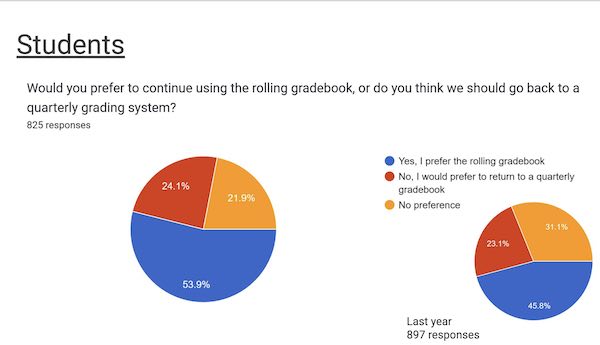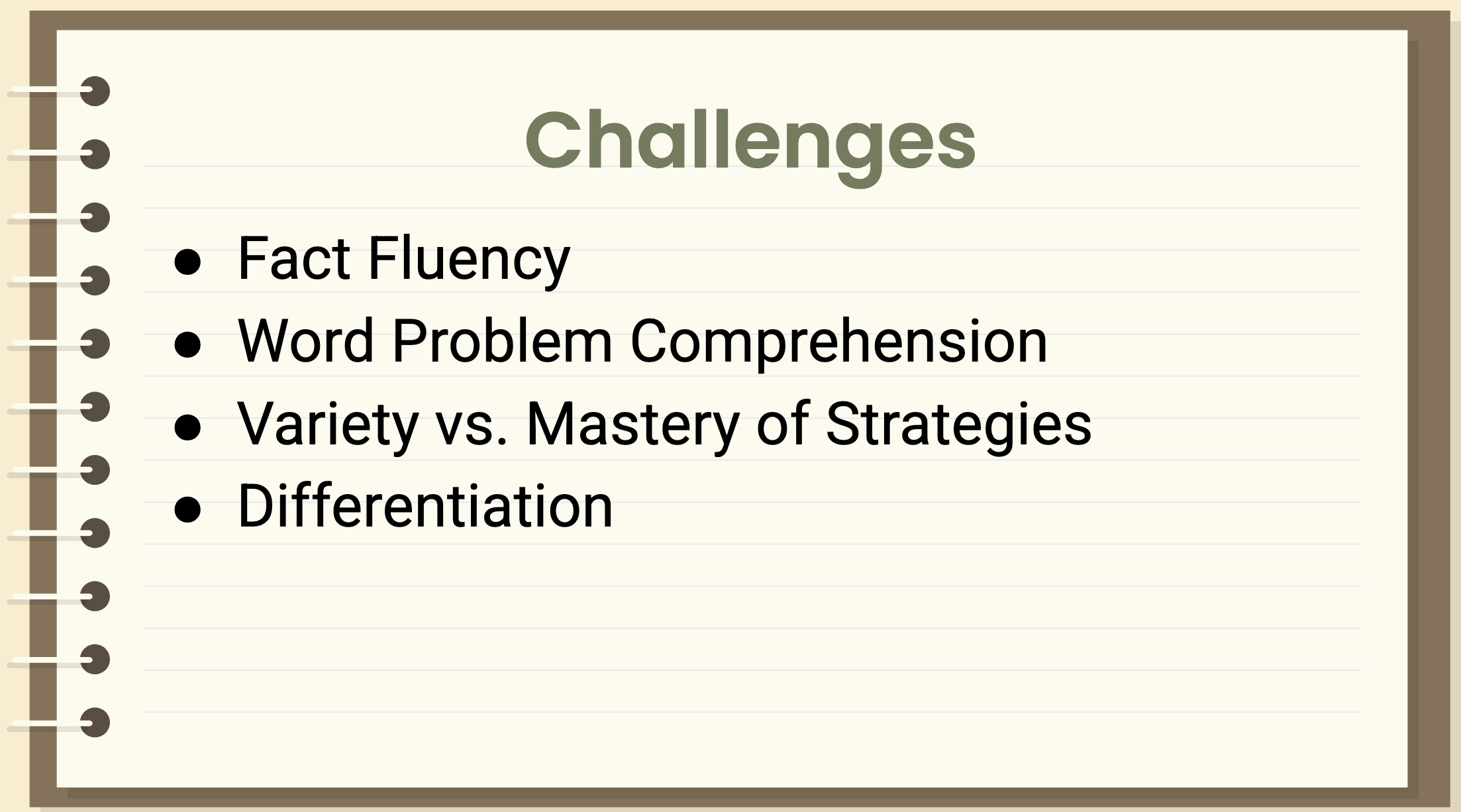District Announces New Grading Policy at SHS and Tactics to Address Concerns About Reveal Math
- Tuesday, 20 May 2025 10:16
- Last Updated: Tuesday, 20 May 2025 14:02
- Published: Tuesday, 20 May 2025 10:16
- Wendy MacMillan
- Hits: 3877
 If you have been tuning in to the Board of Education meetings over the last several months, you’re most likely aware that folks have had a lot to say about the newly adopted Rolling Gradebook at Scarsdale High School and the Reveal Math curriculum at the elementary school level. Administrators have devoted special time to these topics at several recent meetings and, in an effort to maximize communication, transparency, and understanding, did so again in their Education Reports at the BOE meeting on Monday, May 12th.
If you have been tuning in to the Board of Education meetings over the last several months, you’re most likely aware that folks have had a lot to say about the newly adopted Rolling Gradebook at Scarsdale High School and the Reveal Math curriculum at the elementary school level. Administrators have devoted special time to these topics at several recent meetings and, in an effort to maximize communication, transparency, and understanding, did so again in their Education Reports at the BOE meeting on Monday, May 12th.
But at the meeting on Monday, the district did more than listen – the administration announced changes to address feedback about high school grading policies and the Reveal Math curriculum.
Superintendent Andrew Patrick surprised many with his “top down” decision to institute a common online gradebook portal for the 2025/26 school year at Scarsdale High School, which will allow students to access their current grades online. Addressing parent’s complaints about Reveal Math, the district unveiled plans several measures to improve “Fact Fluency,” to assist children with word problems and to introduce complementary resources to help those struggling with the curriculum.
Here are the details:
Before delving into the reports’ details, Superintendent, Dr. Drew Patrick took a moment to address the community.
In a rare but thoughtfully prepared statement, Patrick shared: “Before jumping into either of those, I want to ask for your indulgence, just to articulate some broader thoughts about public engagement and change, as both topics covered in tonight's Education Report have been touchstones for significant public comment and faculty input. A vast majority of that input has been constructive and representative of important and valid stakeholder’s voices and opinions. Public comment, emails, phone calls and in person, meetings with school staff are all meaningful ways to express opinions about the work of our schools, including curriculum policies, practices and approaches.
I want to say unequivocally that I understand how much the parents in our community care about their children and the education they receive. I also want to say unequivocally that our teachers and leaders are passionate and caring professionals and dedicated experts. Each is operating from a single driving force, the desire to do what's best for our students…Thus our work requires a partnership in which we are able to listen and to ask questions, to trust one another and remain open to compromise, to give and to take and to assume good intentions, even when the outcome isn't exactly what we want.
I firmly believe the track record in this school community to do just that is strong. It's one of the things that sets Scarsdale apart from many, if not most, other school districts. Decisions aren't made haphazardly, rather, they reflect thoughtful consideration of relevant information from a variety of perspectives and sources. Tonight's updates on elementary math are an example. Math education is in the midst of a shift in this country. Our approach has been responsive to, and reflective of that shift. However, the input from educators and parents signals to us that we have some work to do to get it right. We won't throw the baby out with the bath water, but we will make smart, responsive adjustments to support our educators to implement those changes and monitor student progress in the moment to make sure they are the right changes.
The journey with high school grading has followed a similar path with one notable divergence, I will confess, the advocacy for changes to the Rolling GradeBook approach took me by surprise. I didn't anticipate it, and when the feedback from parents started coming in, it took me some time to digest and understand exactly what was being communicated. The High School Assessment Committee and faculty have been responsive to that feedback, though, opinions on the Rolling Gradebook remain somewhat mixed.
However, what also became clear is that some of the outpouring of feedback wasn't about the rolling grade book at all, but about other practices, including the degree to which students are able to know where they stand with respect to their grade at any given point in a quarter. As I listened and came to better understand this particular concern, I determined that I needed to make an uncharacteristically blunt, top-down leadership decision. I directed the high school administration to move to a common online, Gradebook for the 2025/26 school year. This decision has justifiably been called into question by some of our faculty, not as a matter of practice, indeed, this is already the practice of a significant number of our faculty, but for its notable lack of process, which is a sacred component of our school culture. I think it's important to publicly own this decision and acknowledge that while I believe it's the right way forward, the concerns raised by our faculty about the lack of process are legitimate, have been thoughtfully articulated, and raise justifiable concerns about unintended consequences of the decision. I look forward to continuing to listen to those concerns and to further explain my rationale over time.”
Rolling Gradebook
Patrick then introduced Laura Weiss, High School Assistant Principal, who shared the results from a recent survey designed to garner community feedback in regards to the new Rolling Gradebook at SHS.
Weiss conveyed that the survey, given in early March of this year, received responses from 825 students, 260 parents, and 87 teachers and noted that 56% of the total student body participated in the survey. The survey found that there was a modest increase in preference among student responders for the rolling grade book, up from 46% last year to 54% this year.

The survey also revealed that 58% of SHS teachers participated in the survey, offering a strong representative voice from across disciplines. Here too the percentage of respondents preferring the Rolling Gradebook increased over five points from 66% to 71%.
According to another slide, the survey garnered 260 responses from parents with a bit more than half indicating that they would prefer a return to the Quarterly Gradebook and a quarter indicating no preference. Here Weiss noted that feedback from parents was considered, not only from the survey, but also from the emails and conversations that SHS has received since last summer.
In considering parent feedback, Weiss explained, “It became clear that the questions around turnaround time, early notification of a change in [student] performance, and overall transparency, were more salient than the choice between the Rolling Gradebook and the Quarterly Gradebook. We have now focused our efforts on these major themes.”
Weiss then outlined some of the changes made in response to parent feedback. She related, “As presented to you by Mr. Bonamo in November, we issued guidelines for homeschool communication regarding changes in student performance. In January we published expectations for turnaround time on student work. We also held information sessions for students and parents about the Rolling Gradebook and administered this survey that I just presented to address issues of transparency. It was decided, as Dr Patrick just outlined, that we will introduce an online student grade portal next school year. Student grades on individual assessments will be posted on Infinite Campus within one week of being returned. Students will have daily access to the portal, while parents will continue to receive information aligned with progress reports and report cards.”
Weiss went on to add, “We believe that this is developmentally appropriate and honors the student's role in managing information about their performance. Parent access to the portal will be based in the context of the continued availability of how they've always been able to communicate with teachers. And the key point here that we want to underscore is that we want the student and parent to have a conversation about student progress before there's communication with the parent and the teacher.”
Before concluding, Weiss clarified that they are exploring guardrails for the new student portal to minimize notifications and working hard to support teachers in making this change in time for the fall. See the Rolling Gradebook Survey Results here.
Reveal Math
In Dr. McIntosh’s absence, Dr. Patrick delivered a detailed report with updates about Reveal Math, the elementary math curriculum, based on feedback first from educators that came through a survey and discussions, and also from feedback received from parents over the last several months.
Patrick used a slideshow to communicate educators’ feedback on growth, gaps, resources and professional development. Starting with some of the positive feedback garnered from faculty, he explained that teachers have noted growth in their students’ ability to explain their mathematical thinking and conceptual understanding. Patrick added, “I concur with that. Having focused my classroom visits on math classes when possible, [students] have been able to explain their thinking both verbally and in writing, using appropriate academic math vocabulary, and engage in math discourse. The program encourages students to discuss and collaborate on problem solving, fostering deeper engagement and confidence in math.”
Patrick went on to share, “Our teachers are also observing improvements in students ability to understand and apply their math concepts, particularly in problem solving, number decomposition and distributed and the distributive property, and then increase flexibility with numbers. And I'd say that's what I really notice. When I'm talking to the students, they’ve become more comfortable using multiple strategies to solve the problems that they're encountering and to have a stronger number sense.”
The presentation then addressed some of the challenges faculty are working through and the approaches being taken to respond to these challenges.

One of the first challenges identified was in regard to some students’ deficiencies with Fact Fluency and with basic math facts such as addition, subtraction, multiplication and division. Patrick recognized that educators worry about a lack of automaticity as impacting students’ ability when they get to those more complex concepts.
Patrick explained that in response to this concern, faculty will work toward math Fact Fluency benchmarking that will work in concert with the fluency checks students currently find in the Reveal Math book. He further explained that during professional development programs over the summer, teachers will work on a process to create benchmarks around appropriate levels of fact mastery in grades one through five. In addition, faculty will create Fact Fluency assessments in a recording system which Patrick describes as “An exciting opportunity for teacher professional development, especially since none of our previous math programs had any specific or formal fact assessment.”
Word problem comprehension was another challenge outlined in the presentation. Patrick recognized that the language is rigorous and students can struggle with understanding and solving word problems, particularly multi-step problems, and this can be exacerbated by those who experience difficulties in reading comprehension. To address this concern, Patrick shared that, “Our team will spend time looking at kindergarten and first grade curriculum and refine the language there and adapt problems as appropriate.”
Teachers have also expressed concerns about introducing students to multiple strategies up front without allowing sufficient time for mastery and believe that this can confuse some students. Because teachers have communicated a need for deeper focus on the success of individual strategies before moving on, Patrick revealed that the Math Coordinators and Math Committee have identified a range of complementary resources which will be embedded into the Reveal Math units. Patrick also explained that these teams are creating a K-2 Enrichment Application Station in Padlet. After exploring these additional resources, teachers will be asked to weigh in to identify what works best for them.
During the presentation, Patrick made sure to acknowledge parental concerns as well. In response to some of the feedback they received, he noted that the team has launched a math parent-facing math website with curated resources such as videos, the math replay videos, and the letters for every unit.
In addition to the website, the team is planning the first District Workshop this June that will be a single event for all five buildings, with representation from all five buildings of teachers and administrators creating the opportunity to experience Reveal Math and deepen the understanding of how the program works. Patrick also conveyed that a program slated for the fall will be responsive to a forthcoming family survey and will provide opportunities at each school to allow parents to engage with the educators.
While Patrick outlined the steps being taken to respond to constructive criticism, he also highlighted the fact that not all of the feedback the District has received from parents has been negative. Rather, parents have also taken the time to express some of the positive outcomes experienced with Reveal Math, some of which includes seeing noted improvements in their children's math understanding and confidence, an appreciation for the opportunities for their child to try different strategies and explain their thinking, and an appreciation that the curriculum puts an emphasis on the real world connections and inquiry based learning, which they feel helps deepen their child's understanding of the math concepts.
Though many of the BOE members related their appreciation for the District’s responsiveness to community feedback and their commitment to the importance of transparency, one parent spoke about Reveal Math during the Public Comment period. Oana Papazoglu said her concerns are not about communication, but rather about the curriculum itself and noted that the challenges outlined in the presentation, fact fluency and word problem comprehension, are at the heart of what math is all about. She went on to share her experience of growing up in a communist country in a small town of coal miners saying, “None of those people, including my own parents, had the time or resources to help their kids in math and yet, that small town produced national Math Olympiad winners. The same is true for all these Math powerhouses, China, former Soviet Union, Korea, Singapore, nations from which the US keeps, to this day, importing mathematicians. None of the parents follow their kids' elementary math curriculum. International Olympian winners do not have resources for parents behind them. They don't have websites, research and so on. What they have in common is a love of math, developing in school due to a rigorous curriculum and dedicated teachers. No iPads, no smart boards, no presentations, no parent coffees, none are present or take place in any of these places where math is taught successfully. Math is math. The beauty of it is that it is a universal language, and if taught this possibly can be the greatest equalizer.”
To review the full slideshow see here.
And to watch the video of the entire BOE meeting see here.






